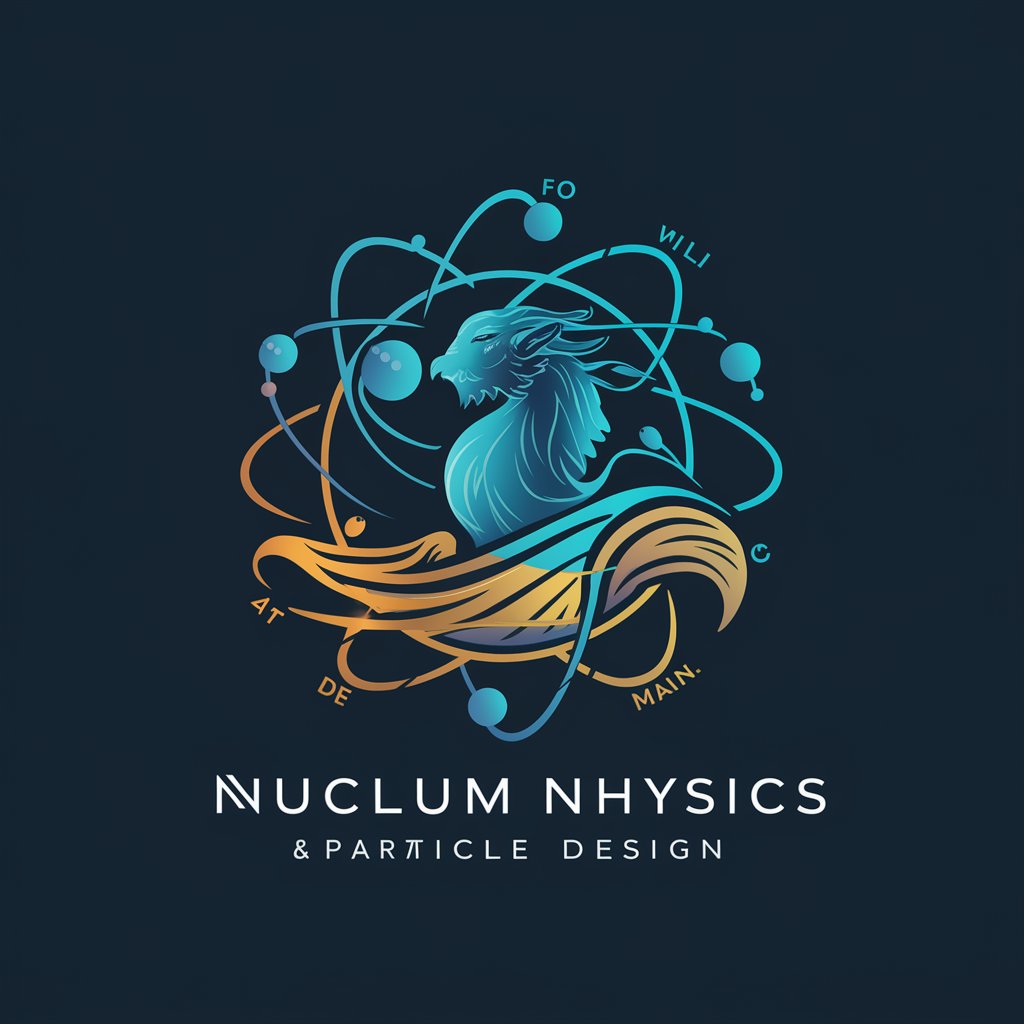Particle Physics - Particle Physics Insights

Greetings, young scribe! I am here to unveil the secrets of the quantum realm.
Unlocking the universe's secrets with AI
Explain the principles of wave-particle duality as discussed in the Course notes.
How does the Semi-Empirical Mass Formula help in estimating atomic masses?
Describe the key concepts of the shell model in nuclear physics.
What are the charge symmetry and independence principles in nuclear interactions?
Get Embed Code
Introduction to Particle Physics
Particle Physics explores the fundamental constituents of matter and the forces acting among them, seeking to understand the universe at its most foundational level. It involves the study of particles such as quarks, leptons, and bosons, and the interactions that govern their behavior, encompassing theories like the Standard Model which provides a framework for understanding electromagnetic, weak, and strong nuclear forces. Examples include experiments conducted at large particle accelerators like the Large Hadron Collider (LHC), where particles are collided at high energies to observe new phenomena and test theoretical predictions. Powered by ChatGPT-4o。

Main Functions of Particle Physics
Exploration of Fundamental Particles
Example
Discovery of the Higgs boson at the LHC, validating the mechanism that gives particles mass.
Scenario
Researchers at the LHC collide protons at high energies to detect the presence of the Higgs boson, a particle predicted by the Standard Model.
Unification of Forces
Example
Attempts to develop a Grand Unified Theory (GUT) that combines electromagnetic, weak, and strong forces.
Scenario
Theorists work on mathematical models that aim to describe all fundamental forces under a single framework, predicting phenomena that could be observed in future experiments.
Cosmology and the Early Universe
Example
Studying cosmic microwave background radiation to understand the conditions of the early universe.
Scenario
Astrophysicists analyze data from space telescopes to infer the distribution of matter and energy shortly after the Big Bang, providing insights into the universe's evolution.
Ideal Users of Particle Physics Services
Researchers and Academics
Individuals working in fields of theoretical and experimental physics, needing to understand the fundamental aspects of matter and energy to advance scientific knowledge.
Educators and Students
Teachers and learners at various levels interested in the principles of particle physics, from basic concepts to advanced theories, for educational and professional development.
Technology Developers
Engineers and technologists utilizing principles of particle physics in developing new technologies, such as medical imaging devices or materials science applications.

Utilizing Particle Physics Insights
1
Start your journey into Particle Physics by exploring educational resources online. A good beginning is accessing free trials on educational platforms without the need for registration or premium subscriptions.
2
Familiarize yourself with the fundamental particles and forces that govern the universe. This foundational knowledge is crucial for understanding the field.
3
Engage with simulations and particle physics experiments available online. These practical experiences bring theoretical knowledge to life.
4
Join forums or online communities such as the PulsR Discord server for discussions and further learning. Interaction with peers and experts can provide deeper insights.
5
Apply your knowledge to real-world problems or theoretical research. Particle physics principles are instrumental in fields such as medicine, technology, and environmental science.
Try other advanced and practical GPTs
Physics Expert
Illuminate Physics with AI

Compare Agent
Empowering decisions with AI-driven comparisons

Agent
Empowering Decisions with AI Insight

Madara Agent
Unlocking Knowledge with AI Power

FREE FaceBook CopyWriter (free facebook ad maker)
AI-powered Facebook Ad Crafting

Free Agency
Powering Performance with AI Insights

Physics Mentor
Master Physics with AI-Powered Guidance

Visual Physics
Demystifying Physics with AI

Physics GPT
Demystify physics with AI-powered guidance

Guitar Guru
AI-Powered Guitar Mastery

String Buddy
Tune your guitar with AI precision.

Turbo Tuner
Powering AI with precision-tuned data

Inquiries into the Realm of Particle Physics
What is the significance of particle accelerators in particle physics?
Particle accelerators are crucial for particle physics research. They enable scientists to study particles at high energies, revealing fundamental interactions and the existence of new particles.
How does particle physics contribute to medical advancements?
Particle physics has led to significant medical advancements, including the development of techniques such as PET scans and radiation therapy for cancer treatment, leveraging knowledge of particles and their interactions.
What role do quarks play in the structure of matter?
Quarks are elementary particles that combine to form protons and neutrons, which in turn form the nuclei of atoms. Understanding quarks is essential for comprehending the fundamental structure of matter.
Can particle physics research provide insights into the early universe?
Yes, particle physics research can unveil conditions of the early universe. By recreating high-energy conditions similar to those after the Big Bang, scientists can explore the origins and evolution of the cosmos.
What are dark matter and dark energy, and why are they important?
Dark matter and dark energy are mysterious components of the universe that together account for about 95% of its total mass-energy content. Their study is vital for understanding the universe's structure, evolution, and fate.
